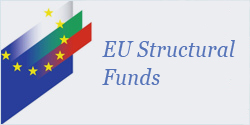
The National Strategy for Sustainable Development of Tourism in Bulgaria 2009-2013
It is approved by the Council of Ministers at the 2nd of April 2009.
Overall vision
Strategy for sustanable tourism development
-
Bulgaria will become well-known and preferred all-year-round destination for both Bulgarian and international tourists, chosen for its rich history, tradition, culture and unique natural heritage. The national hospitality, positive international image, competitive and high quality tourist products are preconditions for the country to provide opportunities for business, holiday and environmentally harmonious life.
- Tourism in Bulgaria is a key priority sector. Its main purpose is to contribute to the implementation of the principles of sustainable development – protection of nature, prosperity of local communities and economic growth.
- Tourism sector will be based on successful long term partnerships at national, regional and local level between all involved parties – the national, regional and local authorities, businesses, NGOs, local communities and foreign partners.
Mission
Bulgaria supports a purposeful consistent tourism policy based on partnerships between government and local authorities, NGOs, the Bulgarian business and civil society in promoting opportunities for investments, new skills and jobs and thus stimulating competitiveness of the tourism industry.
Aims
The main objective in tourism development in Bulgaria until 2013 is enhancing the competitiveness of the sector through effective use and preservation of natural and anthropological resources in compliance with the principles of sustainable development.
Strategic aims:
-
Ensuring higher profile of Bulgaria as a tourism destination in the global tourist market.
-
Improving the infrastructure at national, regional and municipality level.
-
Implementation of international standards, best European practices, innovations concerning products, high technologies and human resources in tourism industry.
-
Preservation, protection and quality improvement of current tourism resources.
Priorities:
"Diversification of the national tourism product, promotion of tourism-related service quality and to secure consumers protection"
Specific aim 1: "Diversification of the national tourism product" includes the following activities:
- to encourage diversification of the national tourism product, improvement of tourism environment in resorts and populated areas, increasing the share of tourist establishments for all-seasons use;
- organizing events as festivals, open air happenings, folklore activities, presentations of traditions, national cuisine, handy crafts and arts, sporting and other recreational actions at national and regional level etc.
"Implementation of energy efficiency measures and standards in the tourism industry"
Specific aim: "Sustainable management of tourism activities, preservation and improvement of tourism resources and their sustainable use" the measures are focused on:
- increasing the use of effective innovative systems – energy saving technologies, use of renewable energies etc.;
- exchanging of know-how with regard to the good practices in energy and eco management in the accommodation structures;
- supporting investments for increasing the energy efficiency in accommodation facilities;
- developing of programs and measures related to energy saving and eco-friendly technologies designed for building and management of tourist sites;
- minimizing the energy use (e.g. air conditioning and heating systems);
- controlling the quality of water and air; sustainable management of waste and sewers;
- introducing of environmental management systems and standards, EMAS, EU Eco-Label for accommodation services, etc.
- making use of the protected natural areas potential as a resource of sustainable tourism development;
"Strengthening of the role of tourism as a key factor for improving the professional skills and development of the labour market in the field of tourism"
Specific aim 1: "To increase the productivity and adaptation of the labour force in tourism and respectively enhancement of the competitiveness in compliance with the strategic aims of the Lisbon Strategy", the measures include the following activities:
-
Development of "alternative" methods of training and education – distance learning, multimedia, interactive;
-
Encouragement of the employers in tourism industry to invest more in the professional training of their teams incl. trainings in the companies' offices;
-
Better tourist responsibility and SME-s training in smaller populated areas;
-
Use of flexible forms of employment - part time, seasonal, etc.;
-
Support lifelong training programs and exchange of good practices in providing tourism services; development of networks and clusters;
-
Development of terms and conditions for "green card" for foreigners from third countries.
Specific aim 2: "To improve quality of education and training in tourism in compliance with the labour market demands thus forming knowledge based economy":
-
Use of ICT in the tourism industry;
-
Improvement of the quality of education and staff qualification in tourism industry at all levels – services, marketing, management, etc.
- Monitoring of the staff qualification and training system and promotion of mechanisms for sustainable partnerships between trainers and businesses;
- Synchronizing procedures for issuing work permissions for the foreign tour-operators and tour agents’ staff on the territory of Bulgaria during the active season.
"Conserving and giving value to natural and cultural heritage"
One of the strategic aims of the National Strategy for Sustainable Development of Tourism in Bulgaria 2009-2013 is preserving and giving value to tourist resources – natural and anthropological. The Strategy stresses on the need of environmentally friendly measures for development of sustainable forms of tourism e.g.
-
preserving the high recreational capacity of the ecosystems and landscapes;
- promoting effective management of protected areas;
- monitoring the impact of the tourism activities on biodiversity.
8, Slavyanska Str., Sofia 1052, Bulgaria
BULSTAT: BG130169256


